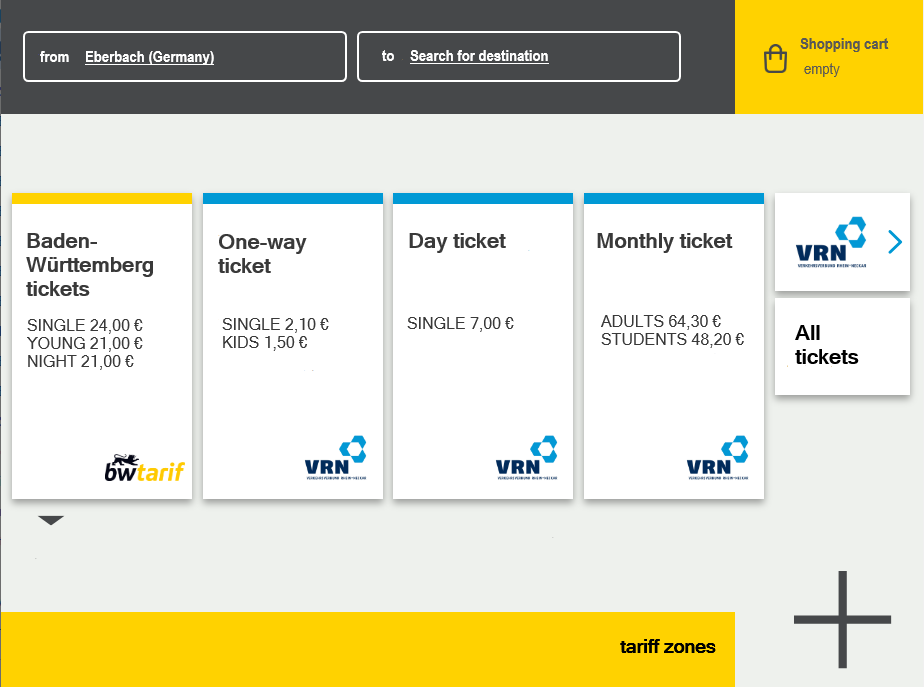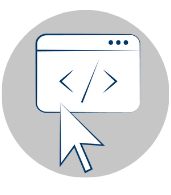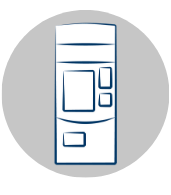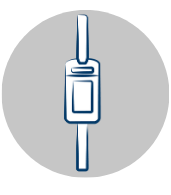INTEGRATION OF ELECTRONIC FARE DATA ACCORDING TO THE VDV PKM STANDARD
Do you want to plan and process your local transport tariffs and processes using the device-independent PKM standard?
The use of Product and Control Modules (PKM) offer a number of advantages over today's methods of fare data provision and enables fare or algorithm changes to control or be offered through various ticket sales channels. We have already implemented the PKM specification and are happy to help you do the same.
The implementation of the PKM standard provides:
- Standardized and data-driven configuration of ticketing sales and check in technologies
- Uniformed representation of tariffs (tariff data and tariff logic)
- Complete and consistent data storage in one place (with auditable responsibilities)
- Tariff-neutral and long-lasting device software with reduced testing efforts
- Minimized device adaptation
Tariff modules according to PKM
The device-independent standard for electronic mapping and processing of fares
The fare module complying to PKM, (product and control module), is a component of the open data and interface standard in the (((eTicket-Germany. It offers the possibility of setting any public transport fares in a standardized way and enables a central, uniform and flexible data supply of sales systems (e.g. ticket vending machines) and ticket inspection devices (e.g. boarding control terminals) with fare and ticket inspection data records.
Not all transport associations use the current standard of product and control modules when introducing and implementing electronic ticketing. As a result, we still find the most diverse forms of data provision of product and control rules in transport associations. We find the same tariffs with different descriptions, non-standardized data structures, imprecise and incomplete specifications for the integration of the data into the software systems as well as different implementation methods of the data into the heterogeneous system landscape.
The importance of product and control modules
The role-neutral tariff module complying to PKM, consists of two modules that shape the process between sales and the control of tariff products. These are the product module and the control module. The product module essentially defines the tariffs and products, which are ultimately driven and checked for validity by the control module.
The object of the "product module" is the conversion of tariff and product ranges into formal, machine-readable data structures. These product modules mainly contain all the tariff-related information required for sales.
The checking of electronic tickets is carried out by means of personnel-operated control devices such as our kt 0127 handheld device or our kt 0113 & kt 0114 on board validators. The data on the user medium read through the control module, contains all the fare-related information required for manual or automated ticket inspection.

We speak PKM!
krauth technology GmbH is able to make use of its extensive knowledge and experience in the delivery of PKM capable devices. This is especially true in definition of the device interface and the implementation of special solutions. In our advisory capacity as a system manufacturer, we provide our customers with the support they need to avoid possible errors in the implementation and to accelerate and accomplish their project’s objectives.
For example, we put the first sales devices with supplied product modules into operation for a customer in 2019. The systems described sell multiple tariffs simultaneously and deliver a very modern user experience. During the development of the system, the software architecture of our devices was adapted to the new requirements without us losing sight of our conventional approach. To get around the built-in performance weakness of interpretive use of XML data, a "PKM compiler" was developed. This "translates" any PK module into an optimized programming language and thus offers a better user experience.
With the goal of creating a HUSST to PKM converter, we have become involved in a joint project with other public transport partners. The converter is intended to provide an easy-to-understand transition between the world of conventional fare setting and PKM.
Through several projects, we have already gained extensive experience with product modules for stationary and mobile ticket vending machines, which are operated in complex fare environments combining several transport companies and Deutsche Bahn.

Advantages of the introduction of a tariff module complying to PKM
The introduction of a tariff module complying to PKM offers a number of advantages over current methods of tariff data provision. In addition to the uniform description of tariffs (tariff data and tariff logic), there is included a central data management, maintenance and sales.
Conventional vs. PKM-based device setting
PKM capabilities are tuned and implemented as an alternative to conventional capabilities. When converting from conventional to PKM-based support, components from the user interface can be re-used.
If the initial system manufacturer’s, tariff provisions, offer and display specifications were used for conventional fare setting, the service of a third-party manufacturer and its PKM editor is needed for PKM-based setting. The individual device interface required for the PKM must be coordinated between the manufacturer, operator and provider of the PKM data.
Transport company in the role of customer contract partner and service provider
Compared to traditional solutions, the implementation of fare modules complying to PKM, shifts the responsibility for setting the fares and the appropriate offer or ticket validation processes, away from the system supplier and back to the operator. This allows the transport company more freedom for the operation of its system.
If tariff autorities (=Product Responsible(PV)) should deliver their tariffs only as tariff modules (PV-TM), the operator (=Customer Contract Partner(KVP)), or Service Provider(DL)) is forced to use these systems. Then the tariff modules must be supplemented by a role-neutral or DL/KVP-TM. Mixed solutions with traditional tariffs and tariffs provided as PKM are problematic within an implement.
Technical & business interfaces
In order for PKM to be used on the target systems, the contents of the underlying XML data must be suitably implemented on the target system. This allows the planned processes to communicate with the target system via the technical interface defined by the PKM specification.
The technical interface must be coordinated and implemented on a project- and device-specific basis by specifying the device interface. This interface serves as a coordinated "contract" between the possibilities and capabilities of the devices and the tariff module being used. In particular, this can be:
- Interfaces to operating dialogs
- Interfaces to special device control
- Interfaces to logging or data registration
- Interfaces to any third-party algorithms used
- Interfaces to non-core application control devices



Provision of PKM-enabled devices
krauth technology supports PKM on all current control and sales devices and applications including the supplying background systems. A special translator translates the PKM data in preparation to an efficient and compact flow code for the target devices. This avoids time-consuming interpretation of the PKM XML data at runtime.
Here to view suitable ticketing devices!